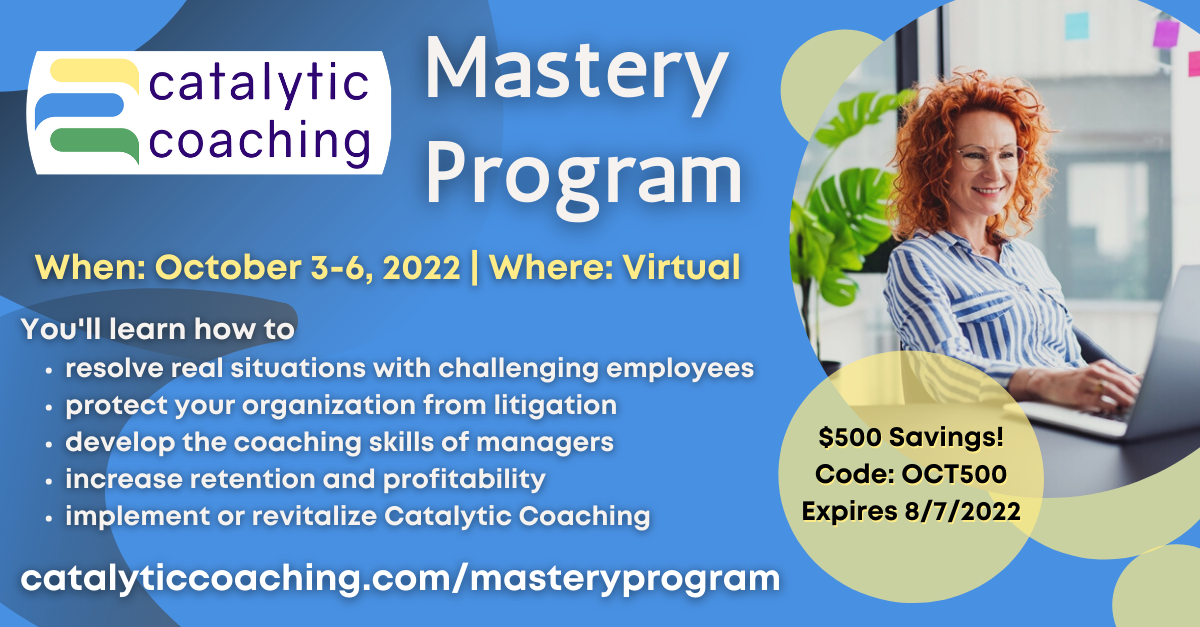The new millennium version of the roaring 20s certainly have been roaring.
Maybe it’d be more accurate to say they’ve been screaming.
It’s pushed so many people to the brink more than once, both personally and professionally. Long term instability wrecks an individual’s finances, relationships, mental health, and aspirations. Now take that and multiple it exponentially across the entire globe.
For business leaders, that means your workforce is more fragile than they want to admit. Not only do they feel like they’re walking on thin ice, but there’s monsters swimming under that ice, they can hear it cracking, their heads are on fire, and it’s raining gasoline.
If the fallout from the pandemic related restrictions, supply line disruptions, and Turnover Tsunami has taught us anything, it’s that you MUST build resiliency into your company and your employees to remain strong in today’s world.
How do you coach for resiliency in your workforce?
Have the conversation.
How have things changed for your employees? Does anyone feel overburdened or ineffective in their job? Did they move during the big housing boom of 2021? Childcare become harder to find? Spouse lose a job or get a new one? Any direct concerns about health, safety, or job security? ARE THEY CONSIDERING A DIFFERENT CAREER?
Some of these may seem personal, but all of them are vital information to have. The answers could have a big impact on your company’s ability to deliver on promises made to customers. BUT how do you get an employee to share any of this with you?
Simply put: You ask AND you listen. Make it a formalized conversation that starts with the employee. What they share must be voluntary, of course. That comes by building trust through these conversations and their follow through. They can also ensure that you.
Have a backup.
Many companies are running on a skeleton crew right now. That means some of the key functions of the company may be entirely performed by one person. What happens when that one person is suddenly gone? From innocent enough reasons like much needed vacation time to less savory ones like illness or resignation, the end result is the same: your organization suffers.
To keep your customers happy and your employees from becoming overwhelmed, you need to have a backup plan. Leverage your performance management to have your talented workers teach their skills to at least one other member of your team. Empower them to create and deliver a workshop to a small group. Ask them to identify a coworker they could mentor and train up. You’ll also want to…
Have the documentation.
Even if someone isn’t fully trained, any employee should be able to muddle through if they’re provided the right tools. As long as they can find it. And it makes sense.
Assign an employee (or a small committee, depending on the size of your organization) to evaluate your filing system and procedural documentation. Have them create a list of gaps. Then managers can assign the task of filling those gaps to the person with the best expertise. Be sure all of your staff knows how that system works and where to access it. You’ll also want to be sure someone checks back on it every so often to keep it organized and up to date. It would make for a fantastic Focus Area for one or more of your employees. Along with that documentation…
Have a plan..and be ready to change it.
If 2020 taught us anything, it’s that plans can and will require change without much notice. Then 2021 just reinforced that. Targets and goals that were set one month ended up needing to be altered the next month. I’ve always found you should HOPE for the best, but PLAN for the worst.
Giving your employees a structured performance management process will provide stability they may not otherwise feel. They’ll have a sense of direction in line with the organization’s goals. If you had those conversations I already mentioned, you’ll also be able to include the employee’s needs, skills, and interests. That way when (not if) a pivot must be made, at least you have the framework to build off of.
If you’re going to execute any decent plan, then you must…
Have a champion.
Whatever process or project you have, it must have a champion. The one person who ensures it gets done effectively and efficiently. They have expertise and, usually, in-depth training.
We call those Catalytic Coaching process champions the Coach2s. These specially trained coaches are equipped to answer coaching questions that managers are struggling with, help the organization capitalize on their performance management, and support training efforts.
If you need a champion, our next training session will be hosted in March. Class size is kept small to ensure everyone gets the time and attention they deserve from Gary and I.
I’ve been a certified Coach2 since 2017. If you have any questions, just let me know.
Jessica Bowers is head of Marketing & Content for Catalytic Coaching, Inc and has been a certified Coach2 since 2017.
With a background in organizational change and education, she’s helped trained hundreds of employees and Coaches.
Have questions? Jessica can help with that.








